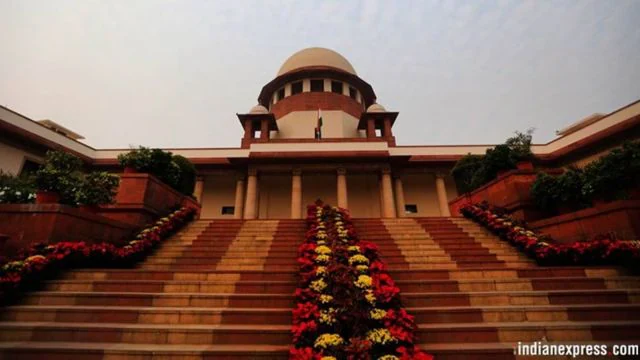Mundra Drug Haul Accused Tells SC: Children Bullied in School Over Terror Funding Allegations

Mundra Drug Haul Case: Accused Says His Kids Bullied in School Over Terror Allegations
In a new twist to the Mundra drug haul case, one of the accused has moved the Supreme Court. He claimed that his children face bullying in school because of the terror funding allegations against him.
This case involves the massive seizure of heroin—almost 3,000 kg—at Gujarat’s Mundra Port in 2021. Authorities say this was one of the largest drug busts in India.
How It Started
In September 2021, the Directorate of Revenue Intelligence (DRI) intercepted a suspicious shipment. The consignment was declared as “semi-processed talc stones.” However, when officials opened the containers at Mundra Port, they found 2,998.21 kg of heroin inside.
The consignment had originated in Afghanistan and passed through Iran before reaching India. Investigators quickly realized this wasn’t just a case of smuggling—it had ties to international crime and terror networks.
NIA Takes Over
Soon after the bust, the National Investigation Agency (NIA) took charge. They added terror-related charges under the Unlawful Activities (Prevention) Act (UAPA), along with narcotics charges under the NDPS Act.
Their findings shocked many. According to the NIA, the accused had direct links with Pakistani terror outfits. The agency said the money made from the heroin sales was being used to fund terror activities.
👉 Read more about NIA’s findings here
Accused Seeks Bail, Cites Children’s Trauma
Harpreet Singh Talwar, also known as Kabir Talwar, filed a plea in the Supreme Court. He is a Delhi-based businessman and one of the accused in the case. In his petition, Talwar said his children are facing severe bullying at school.
He claimed that classmates now refer to his kids as “terrorists’ children.” The bullying, he said, is affecting their mental health. Talwar told the court he has been in jail for months without bail and wants to be home with his family.
His lawyers said the allegations have harmed his reputation and caused serious trauma to his children. They asked the court to consider the emotional impact on his family.
NIA Says Bail Is Too Risky
The NIA strongly opposed Talwar’s request for bail. The agency believes he played a key role in smuggling the drugs into India. They also claimed Talwar had links to global terror groups, including Pakistan-based Lashkar-e-Taiba (LeT).
Officials argued that letting Talwar out on bail could disrupt the investigation. They also worry he might destroy evidence or influence witnesses.
Drug Smuggling and Terror Funding: A Deadly Mix
The case has brought attention to a dangerous trend—using drugs to fund terrorism. The heroin was hidden inside containers that appeared legal. Businesses, ports, and supply chains were used to mask the crime.
Experts believe this method helps terror groups stay under the radar. They use legal trade routes to move illegal goods. The money from drug sales then flows into terror networks through underground systems like hawala.
👉 Details on hawala and terror funding
India’s Ports Under Scrutiny
The Mundra case has forced Indian officials to rethink port security. Authorities are now inspecting cargo more strictly, especially from high-risk countries.
The investigation has shown that even well-established businesses can be part of illegal activities. This makes it harder to detect such operations early. Many of the accused had no prior criminal records.
What Happens Next?
The Supreme Court has not yet made a decision on Talwar’s bail plea. The justices have said they need more time to review all the facts.
Legal experts believe this case could set a new precedent. It touches on serious issues like narco-terrorism, family rights, and bail conditions in terror-related cases.
Meanwhile, the NIA is continuing its probe. They have filed multiple charge sheets and are working with other countries to break the international drug ring.
Conclusion
The Mundra drug haul case is more than just a smuggling story. It involves national security, international crime, and the personal toll on families caught in the middle.
As courts decide the fate of the accused, the country watches closely. Will the judiciary grant bail on humanitarian grounds, or will the threat of narco-terrorism weigh heavier?
This case is far from over—and its impact could reshape how India tackles drugs and terrorism for years to come.






